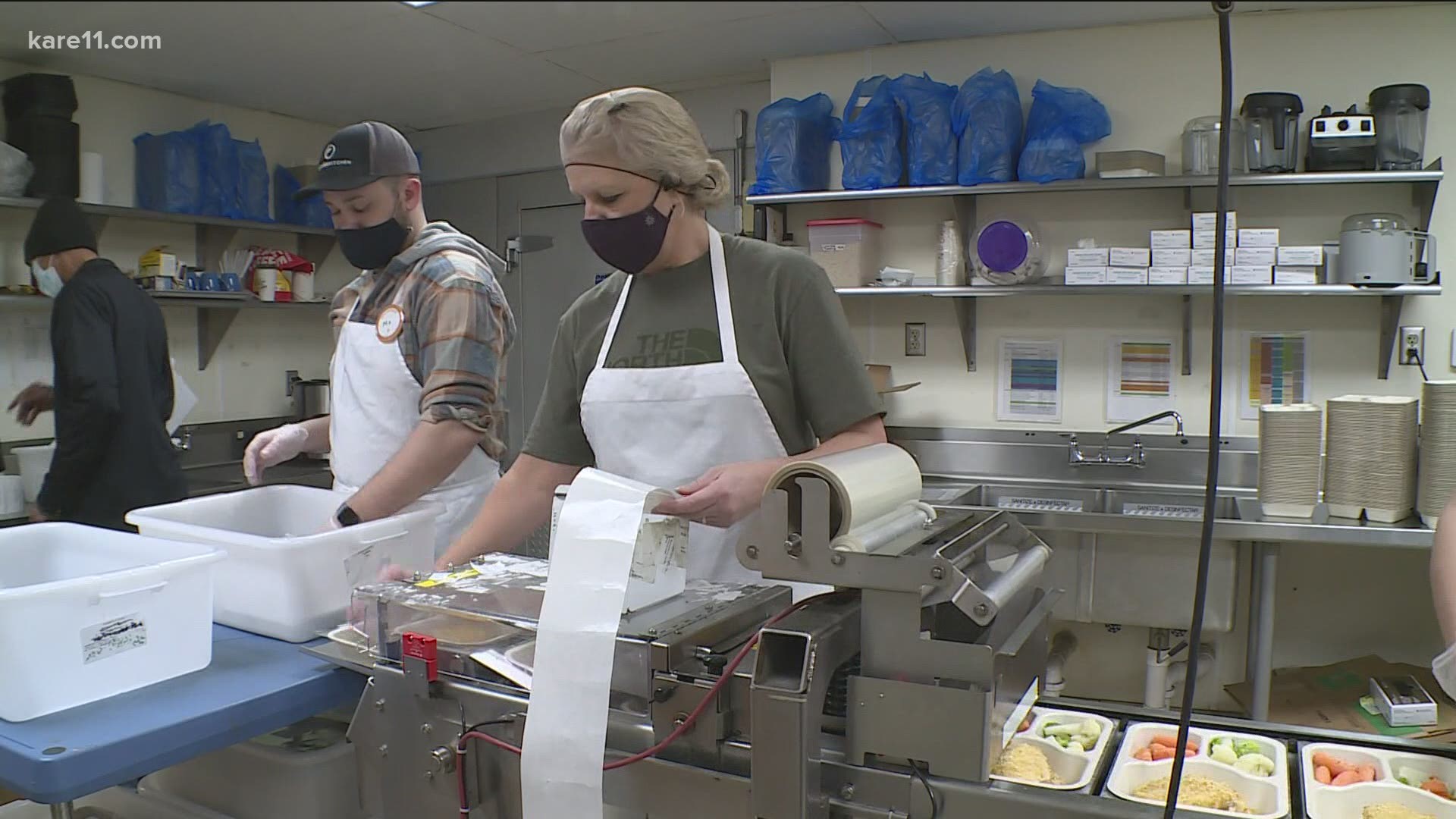MINNEAPOLIS — Demand for Meals on Wheels has jumped more than 400% across the Twin Cities since the beginning of the pandemic. So far, a surge in volunteers and federal aid have helped the organization keep pace, but the extra resources are in danger of running dry in the coming weeks.
When Community Emergency Service in south Minneapolis was looking for Meals on Wheels volunteers a few months back, it was the kind of opening Richard Stallings, had been looking for.
"I'm a retired teacher from Minneapolis public schools, so I needed something to do, and this is something that I can kind of give back," Stallings said. "This is sometimes the only meal people get, so it's a pleasure to be able to deliver."
Stallings was far from the only one willing to step up during the pandemic. According to Metro Meals on Wheels, at least 5,000 people have submitted volunteer applications online since March, but the added help is still struggling to keep up with increased demand.
"It just isn't slowing down," said Lauren Hauter, Marketing and Development Director for Metro Meals on Wheels. "We have 32 local Meals on Wheels programs, collectively, in the metro. There's just shy of 10,000 meals per day being delivered and that number is just ridiculous. It jumped from almost 6,000 before the pandemic."
Hauter says some of those meals are being delivered to traditional Meals on Wheels clients, who tend to be at least 55 years old, or otherwise struggling with mobility issues. But she says the pandemic led to another kind of demand as well. Federal CARES Act funding allowed the organization to serve anyone who requested a meal, as long as they were at least 18 years old.
"It wasn't about age or filling out some requirements," Hauter said. "It was if you called us and you needed a meal, we got it for you at no charge."
In response, the volunteer kitchens that make Meals on Wheels run, are now staffed 10 hours a day, six days a week.
"It looks like it takes a long time to fill up those meals, but it doesn't," Hauter said. "You fill them up, you seal them and you start it all over again."
But there is one big issue that could slow all of it down.
"The funding for that particular stimulus package ran out at the end of December," Hauter said. "I know that another one was passed but we are still waiting on information and word. We haven't seen any of that. Through the generosity of the community, whether it's a business or individual donors or family foundations, are allowing us to continue to support the people that have already signed up."
That support should keep the kitchens and deliveries rolling until March, but nothing beyond that is guaranteed.
"We are going to run the risk of having to turn people away or deny service if we don't get information on where this next round of funding is going to come from and how it's going to effect Meals on Wheels," Hauter said.
For more information on how you can volunteer, donate or receive Meals on Wheels in the Twin Cities area, click here.

